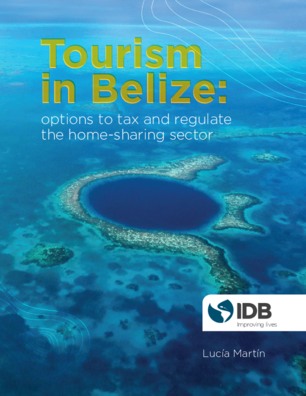Tourism in Belize: Options to Tax and Regulate the Home-Sharing Sector
Date
May 2020
The tourism and hospitality sectors are among the hardest hit by the outbreak of COVID-19, which has impacted both travel supply and demand. Given its heavy dependence on tourism, Belize's economy will be one of the world's tourism-dependent economies most affected by the pandemic. Apart from its immediate impact on employment, the unparalleled shock of COVID-19 in the tourism industry will have fiscal implications. The government's immediate response to the crisis requires helping these sectors sustain jobs and support viable companies at risk. However, the country should be prepared for the comeback of the tourism industry, with plans and programs, but also with regulations that are conducive to building a more resilient and sustainable future. Belize will face the extraordinary challenge of promoting growth in the tourism industry while enhancing tax revenues being distributed to the applicable jurisdictions. Currently, alternative sources of accommodation such as Airbnb are not regulated and do not contribute to tax revenues, which generates an opportunity to analyze the regulatory framework. This study makes available several approaches with different outcomes to regulate the home-sharing sector. The policy route taken by the government regarding the home-sharing sector will depend on finding the correct balance between ensuring a level playing field between traditional hotels and the home-sharing model, raising revenue, and maximizing the economic benefits.




